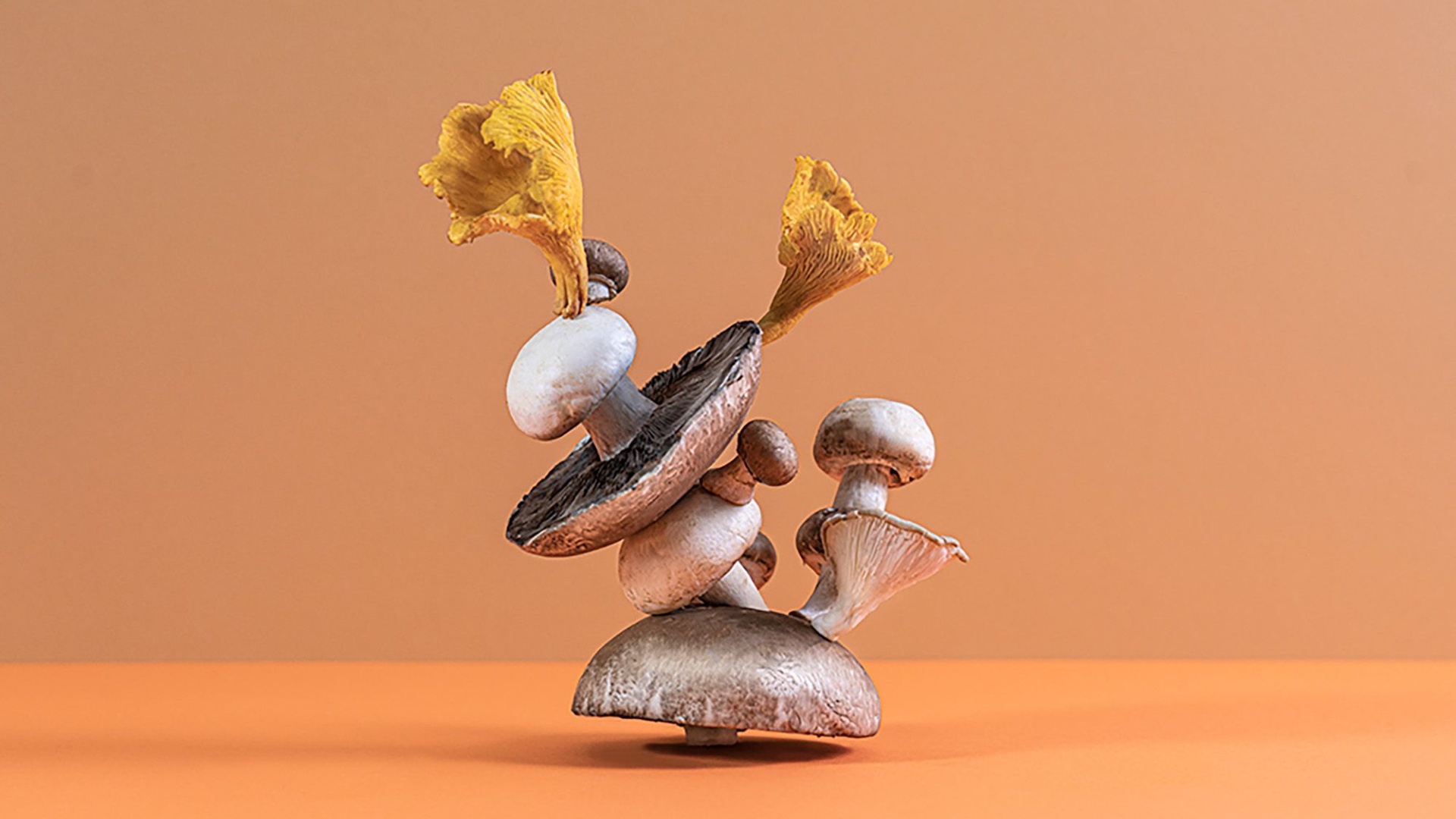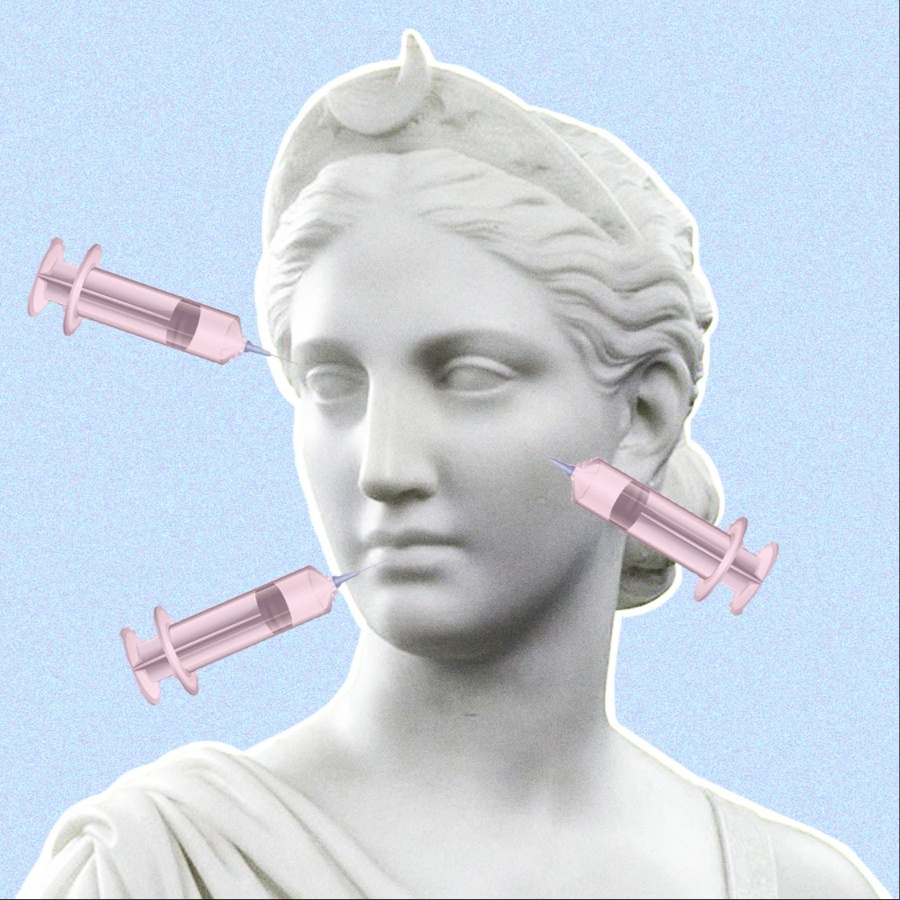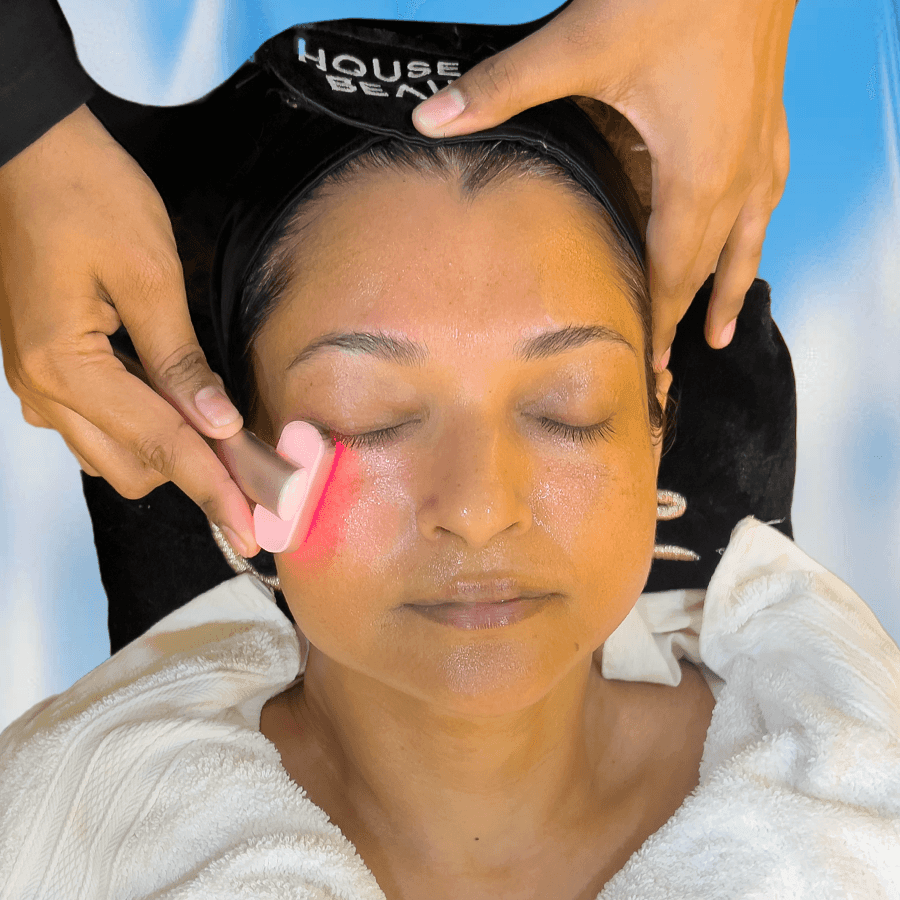Does the word cordyceps conjure up visions of zombies with fungi for heads and a post-apocalyptic world? HBO’s series The Last of Us may not have been far off—mushrooms are taking over the world, but for our benefit. They’re in your clothes, in your furniture, in your favourite LA influencer’s Erewhon smoothie, and slowly, they’re also taking over your local pharmacy’s shelves.
Lion’s mane, reishi, chaga—all types of fungi classified as functional mushrooms—are becoming bigger parts of the vocabulary of the average supplement-popping urban health nut—including celebrities. Bella Hadid is co-founder of a brand of non-alcoholic adaptogenic drinks called Kin Euphorics. Meghan Markle is an investor in Clevr Blends, which creates adaptogenic lattes, including with mushrooms, for sleep, energy, and gut health. And Pedro Pascal, of The Last of Us fame, is backing Alice Mushrooms, a range of functional mushroom chocolates, infused with reishi, cordyceps, and lion’s mane, that offer a full spectrum—from deep focus to deep sleep.
But what are adaptogens? They’re a group of ingredients found in plants (including ashwagandha, turmeric, holy basil, ginseng) and functional mushrooms like the ones mentioned above, that are believed to protect against physical and mental stressors. Unlike magic mushrooms, which contain compounds like psilocybin and psilocin making them psychedelic, functional mushrooms don’t give you a high. Sold in the form of powdered or capsuled supplements, shroom teas and coffees, liquid extracts, gummies, and even protein bars, these are marketed as superfoods to improve mood, energy, and brain health. What has been part of Traditional Chinese Medicine (TCM) is now catching the fancy of the rest of the world.
“While there aren’t double-blind controlled studies, and human trials are few, recent studies coming from the West do show that there is merit in functional mushrooms,” says Dr Vishakha Shivdasani, a physician who works in areas of longevity and disease reversal. The Mumbai-based doctor says that she, herself, has benefited from reishi mushrooms for stress and sleep irregularities. “Instead of starting on medicines, I would rather give lion’s mane mushroom blends to somebody with mild cognitive impairment, or to an elderly person for better memory. Lion’s mane crosses the blood-brain barrier; giving nutrients to the brain. It helps with early-onset dementia, I have seen it among many patients,” she offers.
According to a study on older US adults, mushrooms, a rich source of potent antioxidants ergothioneine and glutathione, and vitamin D, may indeed have neuroprotective properties. They contain good carbs including chitin and beta glucans, which can fight neurodegeneration, a cause of early onset of dementia and Alzheimer’s. Participants who consumed mushrooms also showed a lower risk of chronic diseases such as cancers, depression, and metabolic syndromes. These results however are limited, and more clinical trials are needed.
Not everyone needs to take mushrooms and the results will vary, warns Dr Shivdasani. But among the commonly available functional mushrooms, she suggests cordyceps for athletes; and for sleep and stress issues across age, a decaf reishi. “Cordyceps or lion’s mane coffee in combination with medium-chain fatty acids like coconut oil, are potent for memory and different dementias. Coconut oil is food for the brain; when taken in combination with theanine and lion’s mane, chances of absorption are better than when taken in isolation.”
This fungi is a chatty fun guy
A lot of the conversation around mushrooms revolves around their impact on human neural pathways, which improve the communication routes within the body. Incidentally, this is exactly their purpose in the plant world, where fungi and their root-like filaments, called mycelium, form an invisible, powerful network in the ecosystem, helping plants communicate with each other. “Look at the big trees in concrete cities like Mumbai—no one waters them. But they have a symbiotic association with mycelium, which covers long distances to bring water to the plant,” says Dr Shyam Suryakant Palkar, assistant professor, at Mumbai’s DG Ruparel College. A recent example of mycelium’s communication skills was seen last month at Cornell University, where engineers managed to control biohybrid robots (with oyster mushroom mycelium growing into the robot’s hardware) by converting fungal electrical signals into digital commands. The engineers are now working towards building sustainable robots that could function in different terrains.
Dr Palkar, who also runs a mushroom walk for the Bombay Natural History Society, says that interest in shrooms has grown lately. “People are now more conscious of their health, and the organic food movement and search for alternative proteins has increased the interest in diets that include mushrooms.” He adds that functional mushrooms like lion’s mane taste like seafood and are rich in vitamins and essential minerals, making them great alternatives. Penicillin is a common antibiotic derived from fungi, he explains, while reishi and cordyceps are promising and deserve more clinical trials to solidify the evidence of their possible medicinal benefits to treat viral, kidney, and heart diseases, and for antioxidative purposes.
Shroom boom
The mushroom growth story in India has just begun and it's here to stay, says Rachita Ravi, founder of The Wellness Collective (TWC), a company that retails superfood blends, including all kinds of mushroom supplements and brews. “We are living in a culture where hustling has become a lifestyle and increased our stress levels, so the search for natural solutions to manage stress, support immunity, and elevate cognitive function is thriving.” This is where the niche, yet growing education around adaptogenic mushrooms has led to a shift in the audience—first they were consumed only by those who travel or have lived abroad, but now our functional doctors prescribing mushroom supplements.
It may have something to do with our on-the-go lifestyle today. Shivam Hingorani, founder and CEO of Ace Blend, believes that it is impossible to consume the right amount of nutrients through food alone. He cites a 2019 PwC report that revealed that the nutrient value of the food we grow has dropped drastically in the last 50 years, leading to micronutrient deficiencies across the world. During his research to find extracts that yield high benefits, he came upon mushrooms, each with a unique property. These blends, which include other adaptogens and plant superfoods, also help beat pill fatigue, he says, as they can be consumed in many ways, even if you replace one cup of coffee a day with a shroom coffee. “Our lion’s mane and reishi blends have many takers, with approximately 35 per cent of consumers from non-metros.” He adds that “mental stamina and sleep issues are common today. Even the air we breathe causes inflammation. The narrative of health is changing; good health is a social status and people are interested in people who look healthier.”







